The Rowan University Diversity, Equity, and Inclusion (DEI) Council is responsible for leading in the development, implementation, and monitoring of the university's Diversity Strategic Action Plan. Council members are comprised of leadership, staff, and faculty representatives from all academic units and departments under the university, as well as student leadership representatives. The council has three strategic priorities, led by seven dynamic leaders. Learn more about these priorities, committee goals, and leadership below.
DEI Strategic Priority Committee 1: Creating a More Inclusive and Equitable Campus Community
Goals:
DEI Content and Communications
- Manage a calendar of intercultural and inclusive observances shared across all colleges and schools under the university, for collaboration on educational and creative content development and strategic communications.
- Contribute content to the DEI website/blog, social media, and other DEI platforms and programming; and conduct outreach and foster collaborations with faculty, staff, and students across all colleges and schools under the university.
- Strategize university-wide surveys and other communications in alignment with DEI.
Empowering and Educating Faculty and Staff
- Identify opportunities for collaboration in DEI programming among colleges, schools, and departments under the university with overarching goals.
- Establish a DEI Ambassador program for faculty and staff who are interested in taking a more formal role in shifting campus culture.
Supporting Student Organizations
- Collaborate with the Student Government Association (SGA) and Office of Social Justice, Inclusion, and Conflict Resolution (SJICR) to address and better understand the challenges faced by SGA-sponsored and affinity organizations (recruitment, advisory, training, membership, financial support, etc.).
- Identify opportunities for collaboration among student organizations' overarching goals.
- Expand DEI training on cultural sensitivity and conflict resolution to student leaders who often experience difficult situations.
Dr. Kha' Sadler (She, Her, Hers): Wellness Center DEI Coordinator, Mental Health Clinician
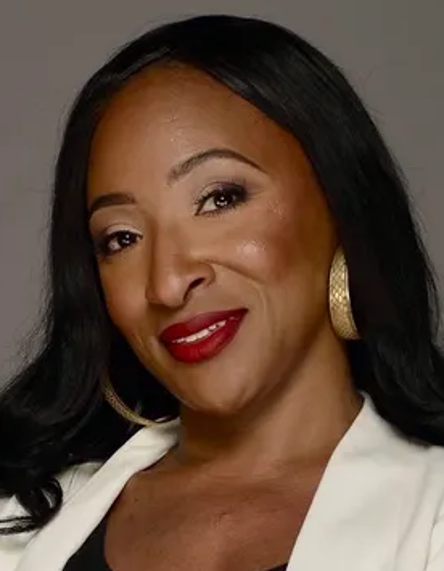
Tell us about yourself:
My name is Kha' Sadler, and I'm one of the mental health clinicians in the Wellness Center and the DEI Coordinator. I provide individual and group counseling, along with consultation to Rowan students. When called upon, I also serve faculty, staff, and student clubs/organizations by facilitating workshops on different and various topics related to the mental health of college students. I have been part of the Rowan community since 2013, when I was initially a doctoral intern at the Wellness Center. In 2014, I later returned to the university in an interim and eventually full-time position as an Assistant Director/Counselor and the Mental Health Clinician in the ASCEND Program, formerly EOF/MAP. I currently advise five multicultural organizations and am the co-advisor of another. My professional interest includes racial and ethnic identity development, issues related to equity and inclusion, minority mental health, spirituality, first-generation and low-income student concerns, sexual trauma, dating relationship concerns, anxiety, and depression. My theoretical orientation is integrative and often includes Psychodynamic, Multicultural Counseling, Humanistic, Solution Focused, Cognitive Behavioral Therapy, and Dialectic Behavioral Therapy.
Given the impact and imprint that systems continue to leave on the minds of marginalized populations, it was paramount that I continued this work outside of Rowan University; therefore, I created, developed, and founded a mental health program titled: U Good F.A.M.? LLC (Fostering and Advancing Mental Health and Emotional Well-Being for Students of Color).
Why DEI work is important:
From a mental health perspective, for me, it is the framework that sets the stage for not only engaging with clients from a place of cultural humility but also charging and challenging a system that has historically lacked representation to address unconscious biases; microaggressions; minority stress; and race-based trauma; with the understanding that policies, practices, and procedures have often been void of strategic and effective implementation of DEI efforts.
Purpose of your committee:
Collaborate with the Student Government Association and SGA chartered and unchartered affinity organizations to address and further understand institutional challenges often faced by affinity groups and develop tangible solutions to tackle their concerns.
Favorite DEI resources:
Here are a few I have found helpful that have also aided and informed my work as a mental health professional (no particular order and certainly not an exhaustive list):
U Good F.A.M.? Education Sessions are offered to faculty, staff, and students at least once a semester, where mental health professionals from Rowan University or the community share their expertise on best working with students of color.
- My Grandmother's Hands: Racialized Trauma and the Pathway to Mending Our Hearts and Bodies by Resmaa Menakem
- Post Traumatic Slave Syndrome by Joy DeGruy
- The Unapologetic Guide to Black Mental Health by Rheeda Walker
- The vast amount of programming that departments and student clubs/organizations offer throughout the academic year as well.
Patricia Fortunato (She, Her, Hers): Content and Program Manager, Research and Grants, NeuroMusculoskeletal Institute, Rowan–Virtua School of Osteopathic Medicine, Southern New Jersey Medication for Addiction Treatment Center of Excellence
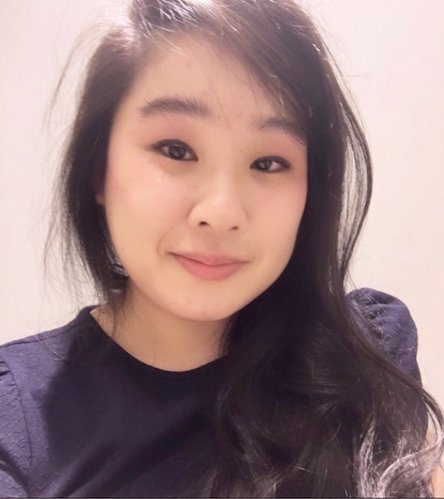
Tell us about yourself:
I've been with Rowan University for four years working in the medical subspecialty fields of pain management and addiction medicine at the NeuroMusculoskeletal Institute (NMI), Rowan–Virtua School of Osteopathic Medicine (Rowan–Virtua SOM), Southern New Jersey Medication for Addiction Treatment Center of Excellence (MATCOE). I'm also an alum of the journalism program. Currently, I serve as Content and Program Manager for research and grants initiatives focused on physicians and other health care professionals.
Our work as part of a clinical mission is rooted in a team mission and vision of increasing capacity to provide evidence-based care for patients struggling with pain and/or substance dependence or substance use disorder (SUD). In my role, I primarily partner with physician leadership and extensively research and interpret complex clinical subject matter, and conceptualize and develop comprehensive statewide programming, including physician education trainings and inclusive prescriber education and health communication resources.
My commitment to the fields is rooted in lived experiences. I grew up aware of the issues, stigma, and shame preventing people from receiving care.
Why DEI work is important:
DEI work has the potential to challenge expectations that exist, pervade, and oppress in education, health care, and society overall. The work that we do has the potential to create meaningful opportunities and environments for everyone.
Purpose of your committee:
The overall and initial purpose of our committee is to create a more inclusive community across campuses. We've since formed subcommittees dedicated to content and communications, empowering and educating faculty and staff, and supporting student-led organizations.
Favorite DEI resources: Several resources that I've found valuable, in no particular order, include:
Articles:
- Park, J., Saha, S., Chee, B., Taylor, J., & Beach, M. C. (2021). Physician Use of Stigmatizing Language in Patient Medical Records. JAMA Network Open, 4(7), e2117052-e2117052.
- Cole, T. (2015). Unmournable Bodies. The New Yorker.
Books:
- Miller, C. (2020). Know My Name: A Memoir. Penguin Books.
- Piepzna–Samarasinha, L. L. (2018). Care Work: Dreaming Disability Justice. Arsenal Pulp Press.
Videos:
- Asian Art Museum. (2020, August 5). Chanel Miller on "I was, I am, I will be" [Video]. YouTube.
- Crenshaw, K. (2016, October 7). The Urgency of Intersectionality [Video]. Part of TEDWomen.
Podcasts:
- (2020–present). Two Addys and a Coffee, Please [Audio Podcast].
- Williams, L., & Peterson, T. (Hosts). (2018, January 29). Invisible Disabilities (Ep 17) [Audio Podcast Episode]. In Disability Visibility Project.
Dr. Stephen Fleming (He, Him, His): Associate Dean of the College of Humanities and Social Sciences
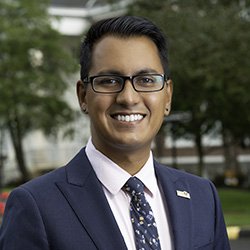
Tell us about yourself:
I support the needs and programming for students in the College of Humanities & Social Sciences (CHSS). As part of my role, I prioritize the expansion of career development and experiential learning opportunities for liberal arts majors. Prior to working with CHSS, my experience was primarily in residence life & housing roles. I am an alumnus of Rowan, having done my Bachelor's and Master's degrees at Rowan. I recently completed my Ed.D in Higher Education at Temple University. In my free time, I enjoy trying new restaurants and training in a martial art called Aikido which I also teach at the Rowan REC Center.
Why DEI work is important:
The benefits of higher education are numerous yet, a college education is not accessible and affordable for all. While Rowan has made commendable progress in creating a more diverse and equitable campus and supporting underrepresented populations, there is still work to do. DEI work is important because it raises awareness of disparities that exist in our work and intentionally strives to eradicate them. Moreover, in supporting the recruitment, retention and graduation of underrepresented students, DEI work moves us closer to fulfilling the promise of higher education as an equalizer for all students.
Purpose of your committee:
The initial charge of our committee was to create a more inclusive and equitable campus community. The committee comprises members from various offices on campus that have a critical influence in this effort. To be more intentional and more focused in our charge, we've subdivided our committee into three subcommittees: content development and communications, empowering faculty and staff, and supporting student organizations. Each subcommittee has specific goals outlined above.
Favorite DEI resources:
I most appreciate the various DEI lectures that are provided by the many units on campus, as they bring diversity and inclusion beyond race and often contextualize these issues in ways that most folks can understand. I also enjoy the programming offered by the SJICR. This office really provides a home for underrepresented students, and the quality and quantity of their programming is impressive.
DEI Strategic Priority Committee 2: Recruiting, Retaining, and Supporting a More Diverse Campus Community
In 2019, SPC2 developed a method for analyzing policies through an equity lens. The University Senate's Academic Policies and Procedures Committee and the Division of Academic Affairs have adopted the methodology as one of the tools they use when reviewing academic policies.
At the request of DEI, SPC2 has documented some of the university's DEI issues and offered potential solutions. Members of SPC2 have begun working with colleagues throughout the university to realize some of these solutions, including:
Goals:
- Offering solutions to DEI issues across campus
- Expand the use of inclusive language practices in the classroom, throughout campus, and in our communications with prospective students and their families.
- Expand the use of inclusive language practices in the classroom, throughout campus, and in our communications with prospective students and their families.
- Prioritizing Student Employment and Leadership Opportunities
- Reduce barriers to full participation in University opportunities such as on-campus employment, experiential learning, and student leadership.
- Reduce barriers to full participation in University opportunities such as on-campus employment, experiential learning, and student leadership.
- Foster Scholarships and Funding
- Expand scholarship funding and revising its structure to meet the needs of underrepresented student populations better.
- Expand scholarship funding and revising its structure to meet the needs of underrepresented student populations better.
- Strengthening Faculty-Student Mentorship
- Increase faculty involvement in student recruitment through outreach to minoritized communities.
Dr. Adrian Barnes (He, Him, His): Coordinator of Music Education
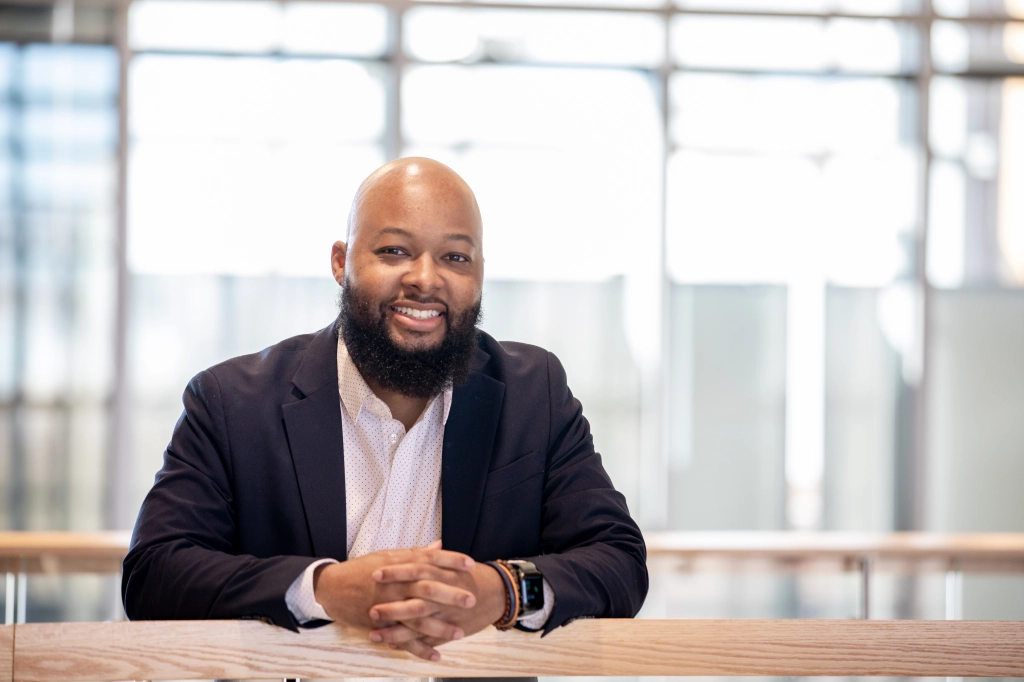
Tell us about yourself:
I began my teaching career as a band and orchestra director at a Title I school in Bradenton, Florida. As an educator, I have prioritized working closely with students from historically marginalized communities and neuro-divergent leaders. In continuing my work with historically marginalized communities, upon attending Texas Tech University, I served as a research assistant on the East Lubbock Promise Neighborhood grant given to Texas Tech University by the U.S. Department of Education. As a research assistant, I worked in the historic Paul Lawrence Dunbar community of Lubbock, Texas, working specifically with Black and Latinx school-aged children. Along with DEI, my research interests focus on recruiting historically marginalized populations by collegiate music ensemble directors at minority-serving institutions.
Why DEI work is important:
DEI work is important because it allows all people, no matter their backgrounds, to engage in the work of correcting inequalities that have negatively impacted the progress of marginalized groups.
Purpose of your committee:
The DEI Strategic Priority Committee (SPC) 2: Recruiting, retaining, and supporting a more diverse campus community is charged with problematizing the recruitment and retention of underserved populations on campus as it relates to students, faculty, and staff.
Favorite DEI resources:
American Council on Education (ACE) Annual Status Report on Minorities in Higher Education
Dr. Amy Woodworth (She, Her, Hers): Chair of the Department of Writing Arts
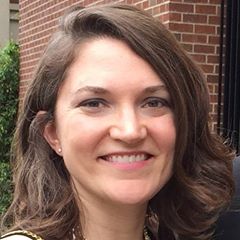
Tell us about yourself:
During graduate school, I earned a certificate in Women's and Gender Studies, and in many ways I learned more in those classes (not just about gender, but race, class, sexuality, and disability) than the entire rest of my education. I've taught at multiple institutions—including Rutgers-Newark and Temple University—that serve diverse populations of students, and I respect and respond to the students in front of me each year. For six years, I directed Rowan's First-Year Writing Program and got a strong sense of the needs of incoming students; as part of my work, I ensured that our faculty got consistent access to professional development on mental health and on antiracist writing pedagogy. I'm excited to continue learning more about recruitment and retention both in my role co-chairing SPC2 and as the new chair of Writing Arts. Outside of Rowan, I like to cook, bike, and take my puppy to the dog park!
Why DEI work is important:
While higher education is becoming increasingly inclusive, it historically was structured around and built to support and maintain the power of a very limited set of people. Examining and challenging the aspects of higher ed that perpetuate inequities needs to be ongoing to make education accessible to everyone and, by extension, change the world around us for the better.
Purpose of your committee:
This committee takes a holistic approach to recruit and retain a diverse community, with a strong focus on supporting underrepresented and underserved students once they arrive at Rowan. In particular, we are working toward structural changes to keep students academically on track and to have a sense of belonging.
Favorite DEI resources:
While I, of course, love books and appreciate the reading groups offered through the Faculty Center and DEI Division, I've found that social media is great for smaller, daily doses of content. Some Instagram accounts worth following are: @splcenter, @colorofchange, @laylafsaad, @ibramxkendi, @democracynow, and @aclu_nationwide.
DEI Strategic Priority Committee 3: Promoting and Supporting Inclusive Teaching, Scholarship, and Professional Development
Goals:
- Develop Best Practices Guide for Faculty and Staff Recruitment, Hiring, and Retention
- Develop a Faculty Hiring Toolkit as a guide for search committees that prioritizes DEI throughout the recruitment, hiring, and retention of minoritized faculty and staff.
- Develop a Faculty Hiring Toolkit as a guide for search committees that prioritizes DEI throughout the recruitment, hiring, and retention of minoritized faculty and staff.
- Prioritize DEI in Faculty and Staff Annual Reviews
- Proposed, pending approval, DEI recommendations for Memorandum of Agreement (MOA) to ensure diversity, equity, and inclusion work is being valued and rewarded as part of the professional responsibility of every faculty and staff member at Rowan University.
- Proposed, pending approval, DEI recommendations for Memorandum of Agreement (MOA) to ensure diversity, equity, and inclusion work is being valued and rewarded as part of the professional responsibility of every faculty and staff member at Rowan University.
- Advance DEI across Rowan University's Curriculum
- Explore recommendations for intercultural competence and diversity across the curriculum.
Dr. Eva Boodman (She, Her, Hers): Assistant Professor of Philosophy
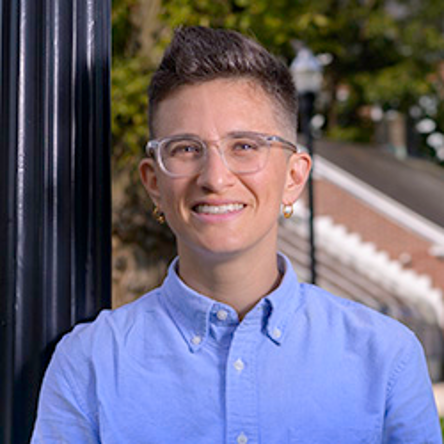
Tell us about yourself:
I'm an educator and researcher specializing in social and political philosophy, feminist and applied ethics, critical race theory, and carceral studies. I'm interested in the questions of complicity, responsibility, solidarity, abolition, and care. I got my Ph.D. in Philosophy and Certificate in Women's and Gender Studies from Stony Brook University in 2017. Here at Rowan, I teach environmental, biomedical, feminist (and other) ethics courses. My first book, White Ignorance and Complicit Responsibility: Transforming Collective Harm beyond the Punishment Paradigm, was published in 2022. My current research seeks to understand, amplify, and develop moral and political frameworks that can transform the conditions of structural harms, and includes a second book project on nursing home abolition and the creation of a care commons. I'm a white settler who grew up on the unceded lands of the Kanien'kehá:ka Nation (Montreal), now living and working on unceded Lenni–Lenape land (Philadelphia).
Why DEI work is important:
DEI work is important because it aims to shift institutional expressions and perpetuations of oppression, domination, and exclusion. Racism, colonialism, sexism, homophobia, and ableism structure our world, including our classrooms, interpersonal interactions, and institutional processes here at Rowan. DEI work seeks to mitigate and intervene in those dynamics by changing the everyday operations of the status quo.
Purpose of your committee:
SPC3's purpose is to support inclusive pedagogy and curriculum development by also supporting and protecting faculty who are engaged in that work. We developed a handbook for hiring and retaining faculty who are members of underrepresented groups; we work on various curriculum-related DEI projects so that our classrooms are spaces that foster equity, diversity, and real inclusivity. Because of oppressive, conservative institutional dynamics, DEI work is often not recognized as "real service." Our subcommittee also works to change policies so that DEI work counts as service in the tenure and recontracting process.
Favorite DEI resources:
#LandBack, anything by Mariame Kaba (Creative Interventions toolkit, We Do This til We Free Us), Marilyn Buck's writings and poetry, anything by W.E.B. du Bois (esp later work), Chris Crass' work on anti-racism, Indigenous Action Media's "Accomplices Not Allies," bell hooks' "Love as the practice of freedom," the movie Crip Camp, Aileen Moreton-Robison's The White Possessive, the book Abolition. Feminism. Now. by Angela Davis, Gina Dent, and Erica Meiners.
Dr. Whitney Cox (She, Her, Hers): Lecturer of World Religions
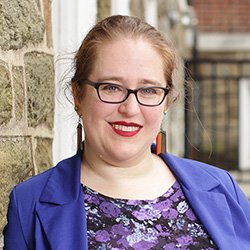
Tell us about yourself:
Whitney received her Ph.D. from Temple University's Department of Religion. Her work focuses on contemporary U.S. Christianity, gender, sexuality, and AIDS. She is also interested in archival research and preserving the histories of queer communities.
Why DEI work is important:
DEI work is important for so many reasons, but I think one that gets overlooked is that it works against systems of oppression. Too often problems are framed in terms of single bad actors—individual people who don't know better (or who know better but just don't care)—with the implication that if we could just fix the way those individuals think, everything would be fine. Alas, even good, well-intentioned people can perpetuate oppression by not examining the harmful effects of the status quo. DEI work challenges the norms and expectations we all work under to create a better place for everyone.
Purpose of your committee:
Our particular committee aims to help faculty make their classes and classes places that better address the needs and perspectives of their students. One of the big ways we want to do this is by ensuring that DEI work is recognized as important work. Making pedagogy inclusive takes time and deliberate effort, but that effort is often minimized or even ignored in favor of more traditional metrics of accomplishment. To make a university that values inclusivity, we must make a university that values how much goes into making that inclusivity possible.
Favorite DEI Resources:
- blacklivesmatters.carrd.co
- scholarstrike.com/resources
- voices.revealdigital.org
- historians.org/perspectives
- radicalhistoryreview.org/abusablepast/microsyllabus-histories-of-queer-radicalism
- issuu.com/candicebenbow/docs/lemonade_syllabus_2016?e=24704410%2F35434012
- medium.com/@UVAGSC/the-charlottesville-syllabus-9e01573419d0